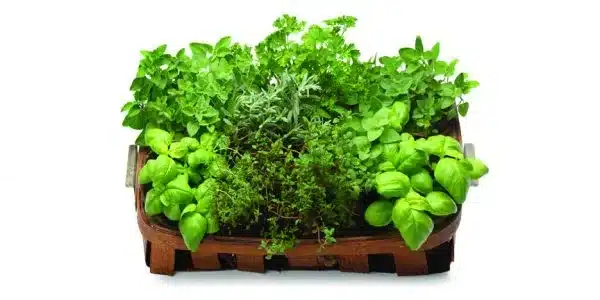In the Spring issue of NAH NOW! − Northern Arizona Healthcare’s quarterly magazine − Juanita Marlette, R.D.N., clinical dietitian at Verde Valley Medical Center, shared some wisdom about the healing powers of culinary herbs and spices.
For centuries, herbs and spices have been used in recipes and poultices by traditional healers around the globe. Think of your grandmother making a batch of chicken soup when you had a cold; steeping a cup of herbal tea with lemon and honey to soothe your sore throat; or putting a mustard pack on your congested chest.
Herbs and spices help intensify the flavor and the healing power of foods. Each contains nutrient-dense antioxidants and phytochemicals that help in the fight against certain diseases, including cancer.
Digestive aids
- Mint has digestive benefits. Peppermint, especially, settles the stomach and relieves gas. Peppermint is also a gentle “bitter herb,” that is, one that aids digestion by stimulating bile production. Bitter herbs like endive, romaine lettuce, chicory leaves and dandelion can be used in salads; others, like horse radish, are good ingredients in sauces or dips.
- Caraway helps relax the smooth muscles of the digestive tract. Seed extracts used in certain commercial herbal digestive aids, sometimes along with peppermint oil, have been found to improve chronic indigestion. Enjoy a small dish of caraway seeds with cheese, or sprinkle them into soups or stews.
- Ginger works as an antispasmodic, soothing the stomach and stimulating digestion. It also relieves constipation, and may ease symptoms of irritable bowel syndrome. These benefits lessen with cooking, processing and storage, so enjoy ginger fresh or minimally cooked.
- Cardamom, cumin and fennel seeds are powerful digestive spices.
- Other helpful digestive herbs include dill, basil, rosemary, turmeric and cinnamon.
Antimicrobial partners
- Thyme fights toxic bacteria, fungi and microorganisms, including those associated with food poisoning. Try marinating meats in thyme-laced seasonings for a few hours before cooking.
- Fresh cilantro leaves and coriander seeds have been shown to combat salmonella bacteria.
- Other antimicrobial herbs and spices include garlic, lemon balm, oregano and cinnamon.
Antioxidants
- Oregano, cinnamon, cloves, basil, thyme, turmeric, sage and parsley are powerful antioxidants that counteract free radical damage to cells and tissues. Free radicals are said to contribute to many aging-related ailments.
Memory boosters
- Sage and turmeric are said to be brain stimulants as well as antioxidants. They also have anti-inflammatory properties that may help allay degenerative brain diseases such as Alzheimer’s.
- Other good memory herbs include garlic, ginger and rosemary.
Heart-healthy helpers
- Fenugreek seeds reduce blood sugar; help the body excrete LDL, or bad cholesterol; and lower triglycerides. Fenugreek also acts as a blood thinner, so use it with caution if you are taking anticoagulants.
- Ingesting a clove or two of fresh garlic daily over a long period may help prevent blood clots. Obtain your doctor’s approval if you are taking blood-thinning medications.
- Other heart-friendly herbs: Onion, chives, juniper berries and ginger.
